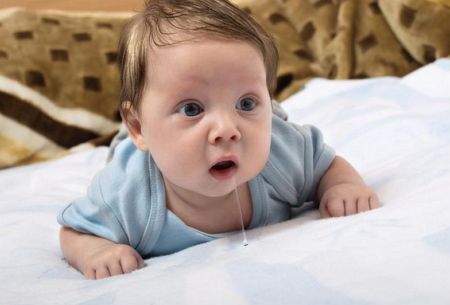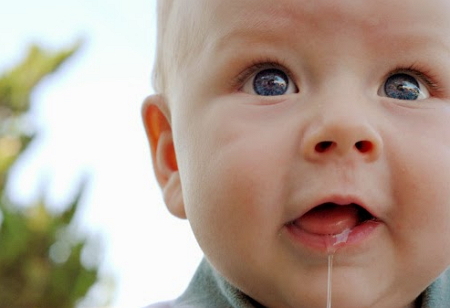Why do Babies Drool

Contents:
When do Babies Start to Drool
After the birth of the baby, and as he matures with each passing day in his development something new can be observed. Symptoms anxious for the mom can't be ignored, for example, increased drooling after the second month of life. The suckling drools, which initially do not cause any discomfort to the baby, then a few days later, saliva becomes more abundant, and the mom has to change more often the clothes of the baby.
If the chin of the baby will be constantly under the influence of saliva, it gets irritated, inflamed, and a toddler begins to show concern, because irritation and rash cause him pain. Why do babies drool, and what this phenomenon is characterized by, we will take a look at in the article.
Why do Children of 2 Months Drool?
Salivary glands start their work during development of the fetus, but only by 2-3 months of life they become really active and produce enough saliva. Therefore, parents whose children drool profusely at the age 2-3 months, should only rejoice at new stage in the development of the child and to try to make it as convenient as possible for the kid and others.
Sufficient release of saliva after 2 months is very important-it provides the splitting of milk starch in the mouth to sugars that facilitates the digestion of food in the stomach, and in addition, the saliva protects the baby's mouth from drying and pathogens.
Due to the fact that earlier there was little saliva and the child did not have this need, he will learn to swallow the excess fluid only by 4-5 months, and then the first teeth will appear and the epic with drolling will begin again to completely cease by 1.6-2 or 3 years.
Drooling is Not Normal

If increased salivation is due to the next stage in the development of the child, then there should be no other signs of pathology. The toddler should remain hilarious, calm, eat with gusto, play and feel fine, with the possible exception of redness and skin maceration on the chin that appears in children due to the constant irritation by saliva.
Sometimes the 2-month-old baby drools due to:
- ARVI or cold – stuffy nose, fever and profuse salivation are the main signs of illness of the suckling;
- allergic reactions – most often happen in young children if they ingest plant pollen, dust, fumes of detergents and other allergens. To distinguish allergic rhinitis is easy enough, except excessive saliva a child constantly has stuffy nose, red and watering eyes, he sneezes and coughs;
- endocrine disorders-diseases of the thyroid gland can manifest at this age by the abundant drooling, and a child constantly has a mouth opened, tongue is thickened and may not fit in the mouth and there are other signs of underdevelopment;
- neurological disorders-in this case the child, beside copious drolling, has a few other signs of developmental disorders-pulsation of prefontanel, constant crying, underdevelopment – the baby doesn't poise his head, cannot lift it while lying on the stomach and so on.
If you believe that your child has too much drooling or there is something alarming in his behavior and development, consult a pediatrician or neurologist – the specialist will help you dispel all your fears and just enjoy each stage of your baby's growth.
Video: Why does my infant drool so much?